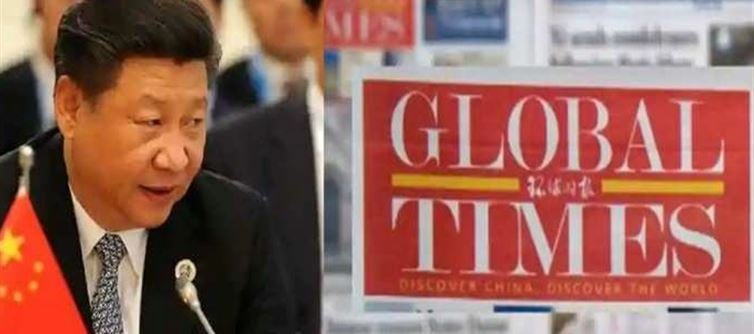
In a surprising turn of events, China's state-run propaganda outlet Global Times, and Turkey’s government-backed media organization TRT World were reinstated in india after being briefly blocked earlier in the day. The move came after both platforms were accused of disseminating fake news and spreading misinformation that allegedly targeted India’s sovereignty and security. The block, initially seen as a stern response by the indian government to foreign interference, was quietly reversed within hours, raising questions about the motivations and consistency behind the action.
The reinstatement of these foreign outlets sparked a wave of criticism on social media, where netizens began trolling the ruling bjp administration. Critics accused the government of capitulating to pressure from powerful foreign nations like China, with many users sarcastically remarking that the administration appeared more concerned about upsetting beijing than standing firm on national dignity. Memes, satirical posts, and hashtags calling out the government's perceived double standards trended across platforms, reflecting growing public skepticism over its handling of media freedom and foreign policy.
Adding fuel to the controversy is the ongoing block on Ananda Vikatan, a tamil magazine that has remained inaccessible after publishing a cartoon mocking prime minister Narendra Modi. Unlike Global Times and TRT, Vikatan—a domestic, mainstream publication—has not been reinstated, sparking accusations of selective censorship and bias. This stark contrast in treatment has led to widespread criticism, especially from regional media and political commentators, who view the government’s actions as an affront to press freedom and an indication of its intolerance toward internal dissent while being overly cautious with foreign powers.
The reinstatement of these foreign outlets sparked a wave of criticism on social media, where netizens began trolling the ruling bjp administration. Critics accused the government of capitulating to pressure from powerful foreign nations like China, with many users sarcastically remarking that the administration appeared more concerned about upsetting beijing than standing firm on national dignity. Memes, satirical posts, and hashtags calling out the government's perceived double standards trended across platforms, reflecting growing public skepticism over its handling of media freedom and foreign policy.
Adding fuel to the controversy is the ongoing block on Ananda Vikatan, a tamil magazine that has remained inaccessible after publishing a cartoon mocking prime minister Narendra Modi. Unlike Global Times and TRT, Vikatan—a domestic, mainstream publication—has not been reinstated, sparking accusations of selective censorship and bias. This stark contrast in treatment has led to widespread criticism, especially from regional media and political commentators, who view the government’s actions as an affront to press freedom and an indication of its intolerance toward internal dissent while being overly cautious with foreign powers.




 click and follow Indiaherald WhatsApp channel
click and follow Indiaherald WhatsApp channel